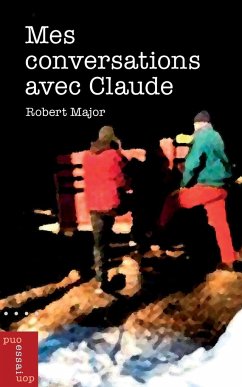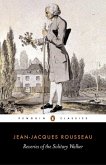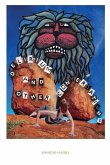Claude était éminemment habile à converser. Car il écoutait. Il écoutait attentivement et pesamment. Il jaugeait les paroles qu'il entendait, et réfléchissait longuement avant de hasarder une réponse. Si longuement que le narrateur en est perplexe, au début. De toute évidence, il n'était pas de ces gens qui, selon La Bruyère, « parlent un moment avant que d'avoir pensé ». Il y a donc un paradoxe: un livre de conversations avec quelqu'un qui ne parlait guère! Pourtant, malgré tout, des liens se sont noués. Il y a eu rencontre de ces êtres, qui sont sans doute, au départ tout au moins, un dilemme l'un pour l'autre: d'un côté un quasi analphabète, mais homme sage; d'autre part un universitaire, littéraire en plus, prolixe par déformation professionnelle... Le livre de dialogues a une longue et vénérable histoire. Il a eu cours, en particulier aux XVIIe et XVIIIe siècles, mais on peut retracer son origine jusqu'aux dialogues platoniques, mettant en scène Socrate et divers interlocuteurs. Certes, ce petit livre n'a pas la prétention de s'insérer dans la prestigieuse série des dialogues illustrée entre autres par Platon, Sénèque, Diderot, Fontenelle, David Hume, voire Marguerite de Navarre ou encore Voltaire, celui-ci sur un mode satirique. Tout simplement, il fait état d'une rencontre. Ce livre est publié en français. - Claude was eminently skilled in conversation. Because he listened. He listened attentively and intently. He measured the words he heard and thought long before risking an answer. So long, in fact, that in the beginning it confused the narrator. This man was clearly not one of those people who, in the words of La Bruyère, "speak one moment before they think." And so here we have a paradox: a book of conversations with someone who hardly spoke! Yet, despite everything, bonds have been forged: encounters between people who, at least initially, posed a dilemma for one another--a nearly illiterate but wise man on the one hand, and an academic, a literary man to boot, made verbose through professional deformation on the other... As a genre, the dialogue has a long and venerable history in literature. It was especially popular in the 17th and 18th centuries, but the history of this literary form can be traced back to the Platonic dialogues with Socrates and various other interlocutors. To be sure, this small book makes no claim to join in the august ranks of the dialogues of Plato, Seneca, Diderot, Fontenelle, David Hume, Marguerite de Navarre, or even Voltaire and his satirical approach. It simply tells of an encounter. This book is published in French.
Hinweis: Dieser Artikel kann nur an eine deutsche Lieferadresse ausgeliefert werden.
Hinweis: Dieser Artikel kann nur an eine deutsche Lieferadresse ausgeliefert werden.








